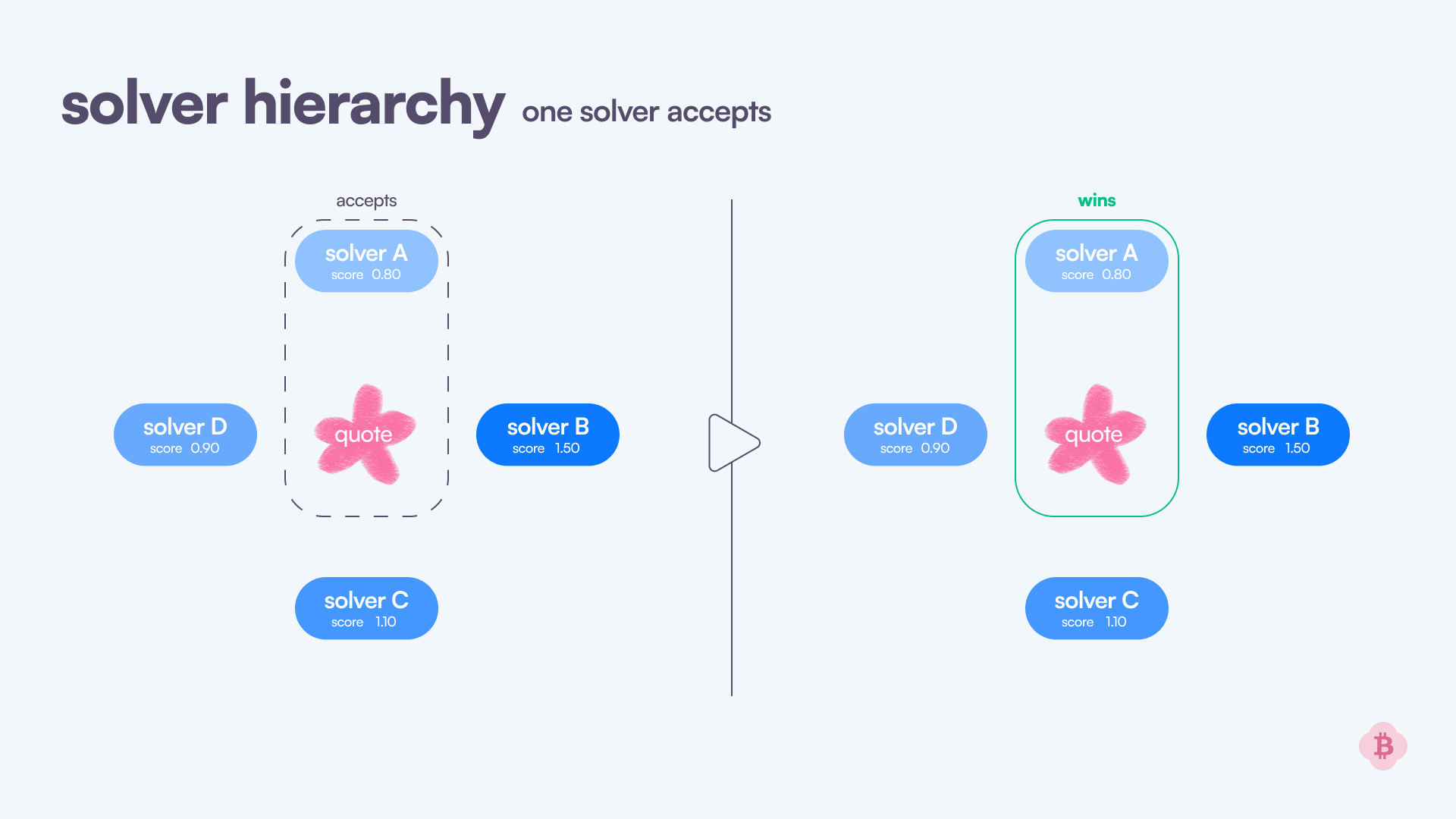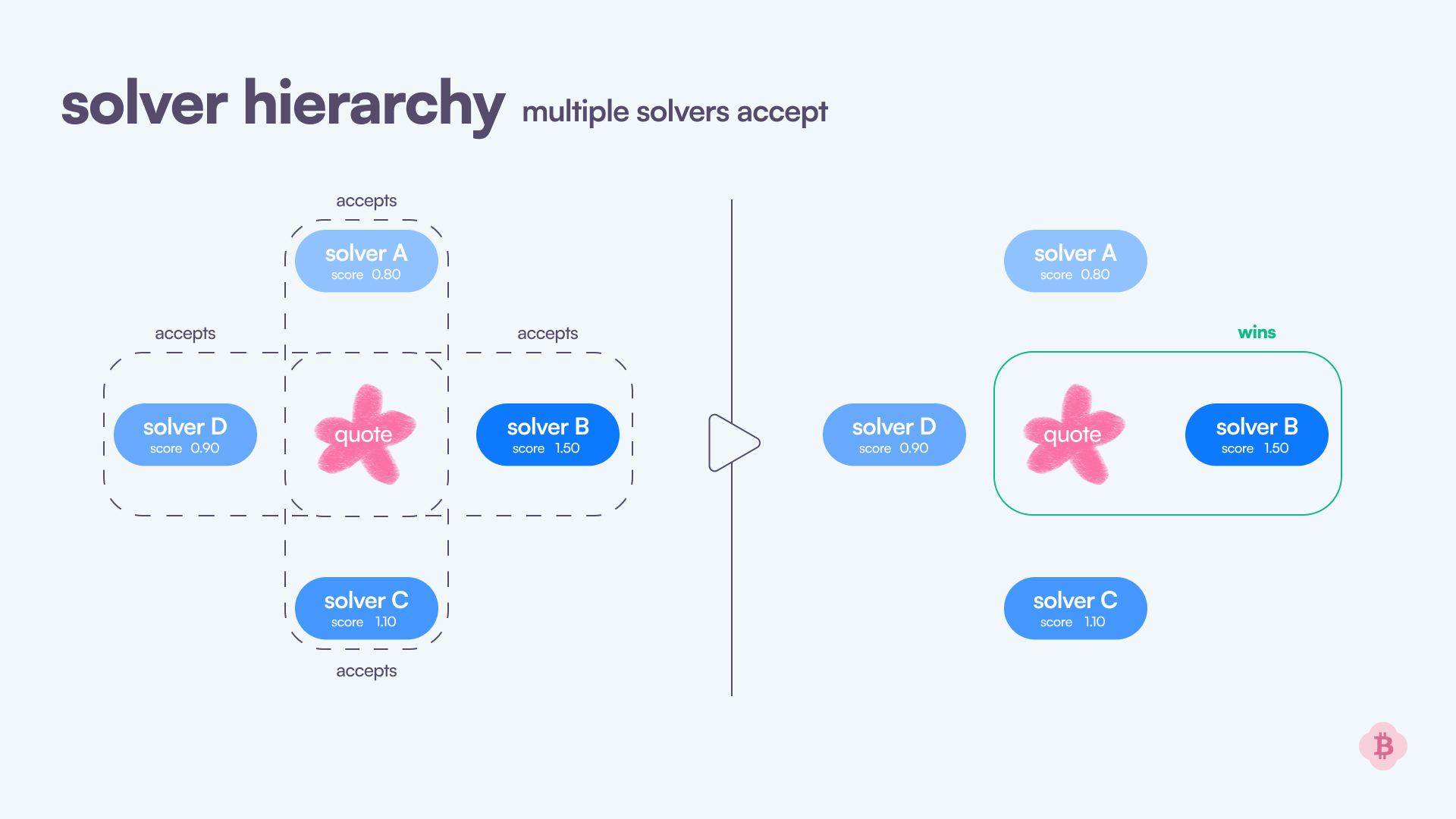Auctions
The auction process identifies a solver to execute user intents, such as performing a swap. Garden's auction system ensures intents are fulfilled efficiently and at competitive prices.
Garden balances both competition and fairness by leveraging solver scores to create a system where solvers are incentivized to optimize their performance while maintaining accountability to their stakers.
Solver score
The solver score combines performance efficiency and vote power to determine a solver's priority in the auction process. It is calculated as:
Settlement score for a specific chain C:
Weighted settlement score across all chains:
Final solver score:
Solvers with a score greater than 1 get priority in the auction. Solver scores are calculated before every auction.
How does a typical auction work?
- All solvers submit their quotes for a given intent to the order book. Each quote specifies the solver’s proposed execution price for fulfilling the intent.
- The order book identifies the solver with the best price (i.e., the lowest quote).
- Solvers with a staker score higher than the solver with the best quote have a 5-second window to accept the best quote. This mechanism ensures that solvers with higher backing from stakers have the opportunity to get first dibs on intents.
- The outcome depends on the participation during the acceptance period:
No one accepts: The solver with the best quote wins the auction and fills the order.
One solver accepts: The solver who accepts the quote gets the order.

Multiple solvers accept: Among the solvers who accept the best quote, the one with the highest staker score wins the auction and fills the order.
